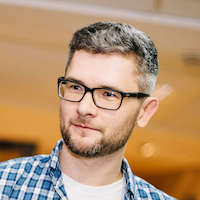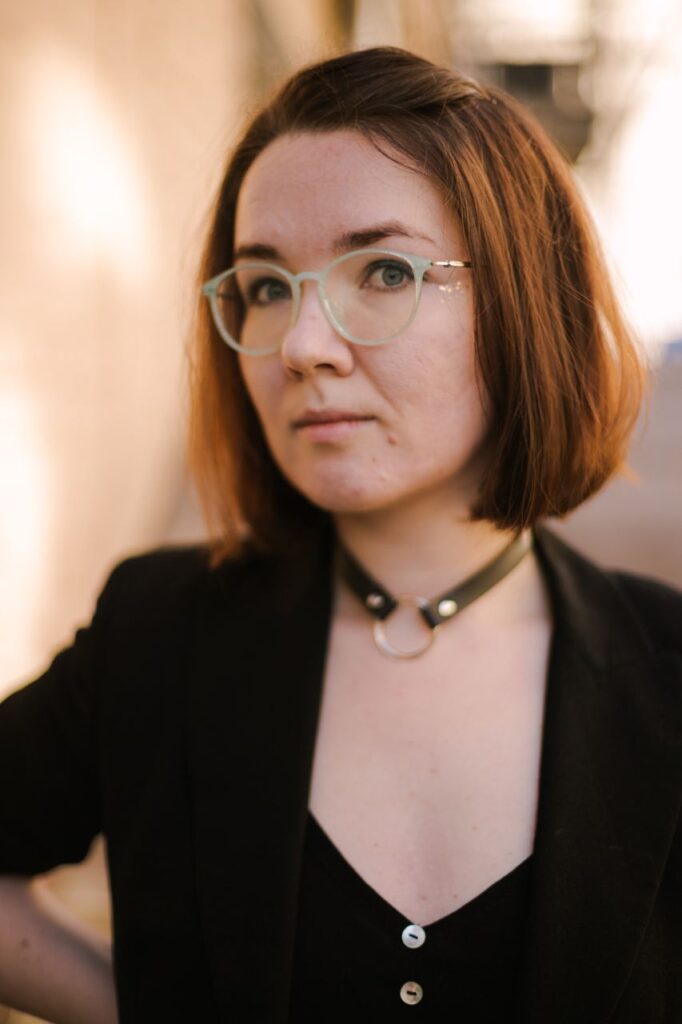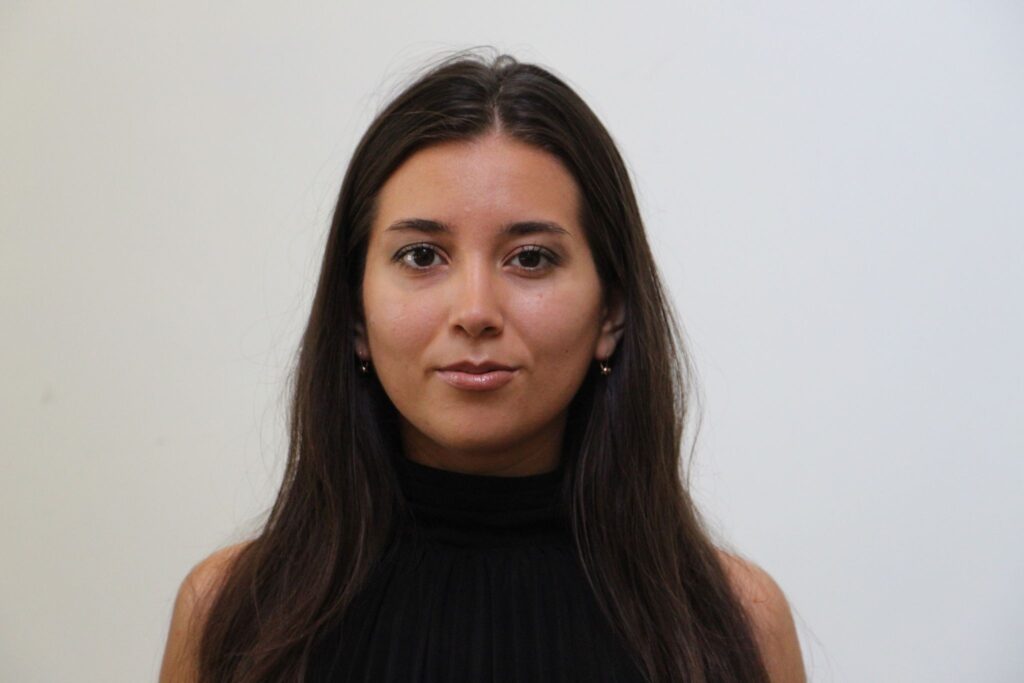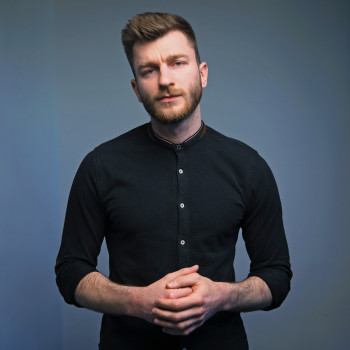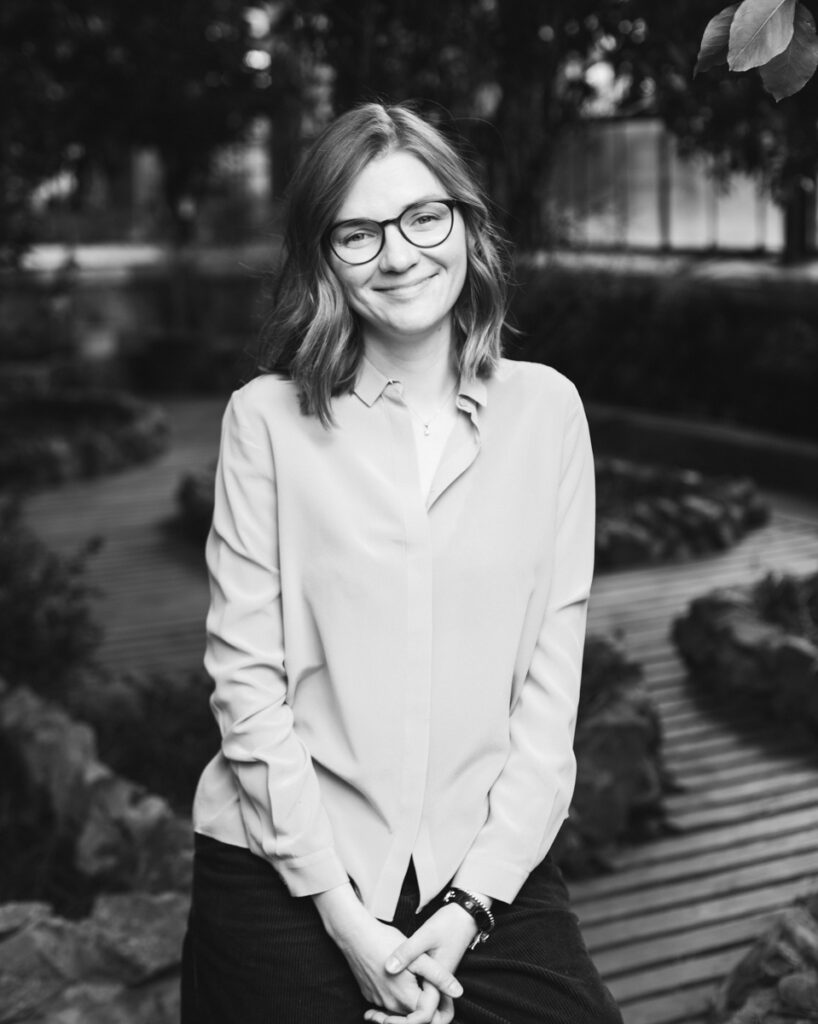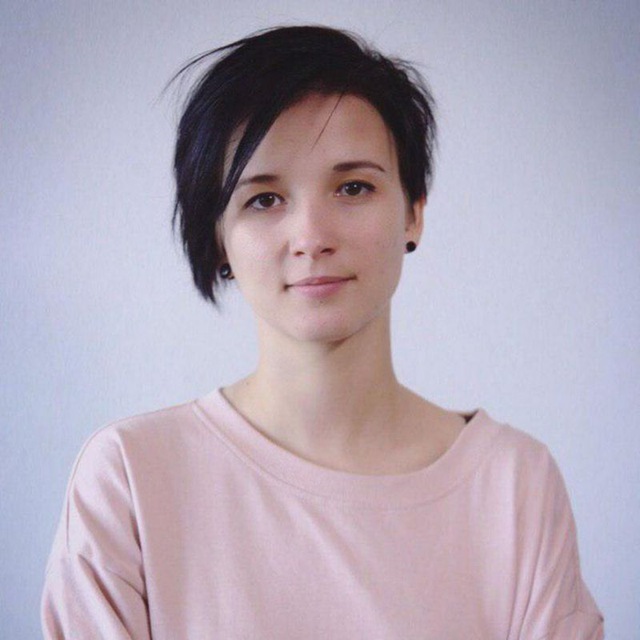Hi from Kyiv,
Last spring was definitely the toughest one in modern Ukrainian history, and perhaps the most painful in the lives of millions of Ukrainians. We felt a new level of fear, insecurity, disgust and anger. But at the same time, for me and many other Ukrainians who I have spoken with, these were also happy months.
We felt united as never before, and we did everything we could for the common good with sincerity. In Kyiv’s subway, it felt like all the passengers were members of the same company. Sometimes sad, sometimes focused, we were all heading in a common direction ― not only physically.
This war takes a lot ― lives, buildings, hopes and plans are destroyed. And, albeit at a terrible price, some things are transforming for the better.
For example, the oligarchs’ grip on Ukraine has all but disappeared. Russian street names and monuments have also vanished, as we shake off our colonial heritage. For this issue, Ukrainian journalists show what Ukraine has lost and gained after the year of a full-scale war. We are changing ― and here is how.
Anton Semyzhenko, this week’s Editor-in-Chief
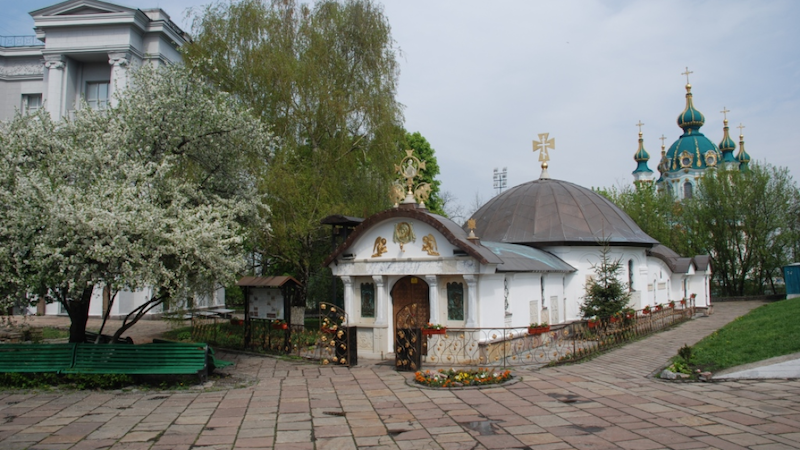
In Ukrainian cities, many things can happen at the same time at 9am on a Sunday morning. Services in churches begin. Loudspeakers announce a nationwide minute of silence for those killed in the war. A message drops into an online chat room: “Russian missiles may soon be fired from the Black Sea area.”
On the morning of 19 February, church bells ring over the Kyiv hills. I’m standing a few steps away from the ancient Tithe Church. It was destroyed in 1240 when the Mongol ruler Batu Khan stormed Kyiv. At that time, people hid in the church, hoping the consecrated stone walls would protect them.
Ukraine is a secular country where the church is separate from the state. But the role of religion, and Christianity in particular, should not be underestimated. According to surveys, 44% of Ukrainians trust the church. After a year of full-scale war, however, this trust has diminished ― we now have more faith in our army than in God.
The sound of the bells carries far in the cold air. Different people gather for prayer: elderly women, a couple with a small child, and a fair-haired woman on a bicycle. An idyllic picture, if one did not know that this tiny temple, which Ukrainian journalists call a ‘kiosk’ due to its size and poor location, will soon have to be demolished. This is due to a court order. This church is part of a monastery belonging to the Ukrainian Orthodox Church of the Moscow Patriarchate (UOCMP), which remains loyal to Moscow and is, in fact, under the Russian Orthodox Church. At the head of this temple is Bishop Gideon, who was stripped of his Ukrainian citizenship in December because he had a Russian passport. Dual citizenship is illegal in Ukraine.
The nuns, dressed in black, argue about who left the green cloth under the bench. In a few minutes, the oldest nun will use it to wipe the icons. Priests will say prayers for unity and for those in captivity. In Russian. It feels like God is being lied to, shamelessly.
In August, the head of the UOCMP, Metropolitan Onufriy, received captured Russian soldiers and even blessed them. He doesn’t pay the same attention to the Ukrainian military, though. Ukraine accused one UOCMP priest of collaborating with and supporting Russia, and extradited him in the direction of Moscow. This made at least 101 Ukrainians happy, as they returned home as part of this prisoner exchange.
“Perhaps we are atheists, but we are atheists of the Kyiv Patriarchate,” some friends of mine have joked. Though they aren’t really religious, this reveals their political attitude. In 2019, pro-Ukrainian Orthodox priests founded the independent Orthodox Church of Ukraine (OCU). This was recognised by the Ecumenical Patriarchate of Constantinople, the Istanbul-based ‘higher authority’ of the Eastern Orthodox Church. Ukraine’s move was not unprecedented. In some ways, it righted a historical wrong. In 1686, the Kyiv Seat was temporarily given to the Russian church. Now this ‘temporary’ state of affairs has come to an end. Since then, the question of religious choice no longer arose for many truly devout people. However, it became impossible for worshippers to justify attending a pro-Moscow church on the grounds that it was “more legitimate” than its Ukrainian counterpart.
Only a few minutes’ walk from the “kiosk” is OCU’s St. Michael’s Golden-Domed Monastery. I still have time to go there. I listen to the priest’s Sunday sermon, standing among dozens of people. In front of me is a young man in the uniform of the Ukrainian army. On the walls hang portraits of those who died in the war, starting with the executions of the Heavenly Hundred during the Revolution of Dignity in 2014.
Sometimes the choice of where to pray not only depends on God.
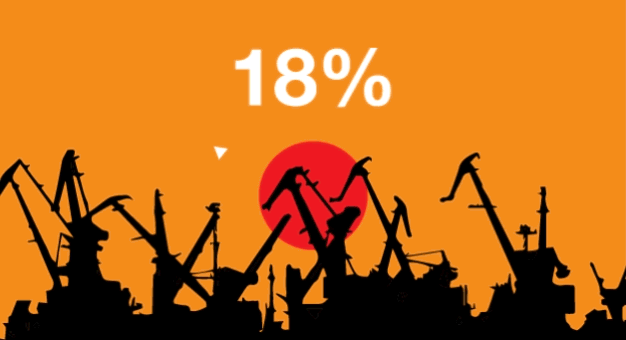
For 2022, the city of Mariupol’s planned budget growth was 18%. Before the full-scale war, the port city was one of the richest Ukrainian cities: taxes paid by local industry helped create a prosperous local economy.
This money was allocated to build a new park and a transport depot, and to support festivals dedicated to classical music, literature and modern art.
Thanks to its thriving artistic scene, Mariupol received the status of the Ukrainian cultural capital in 2021. Delicious seafood from the Sea of Azov and speciality dishes prepared by the 20,000s of ethnic Greeks also made Mariupol a destination for foodies.
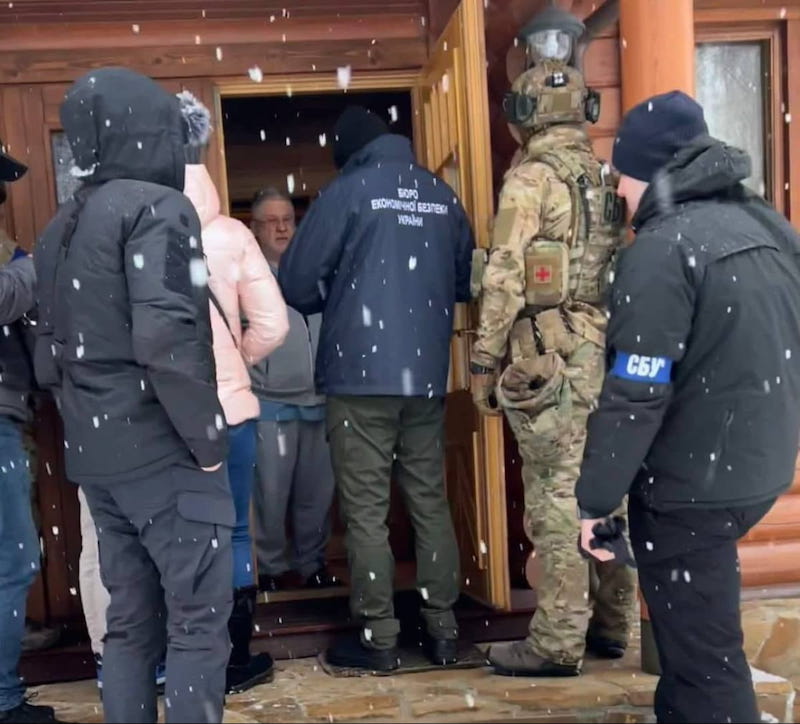
The full-scale war has altered Ukraine’s power structure, delivering a deadly blow to the country’s wealthy and politically-connected elite.
“Today this group [the oligarchs] doesn’t influence politics, the economy or the media anymore,” Ukraine’s National Security and Defence Council Secretary Oleksiy Danilov said in a recent interview.
In late 2021, President Volodymyr Zelensky made the colloquial term ‘oligarch’ official by signing an anti-oligarch law, which stated that this moniker refers to a wealthy person with a net worth of over $80 million, who owns or influences both media and politics. Many thought that decreasing the oligarch’s powers would need years. It took only days.
Soon after Russia began bombarding Ukraine on 24 February 2022, the TV stations, some of which are owned by oligarchs, were forcibly merged into a continuous government-run news telethon, which is still airing today. The same day, the National Security and Defence Council imposed martial law, with the president becoming the country’s sole power holder.
Now, many oligarchs are losing their wealth and assets due to Russian attacks and the government’s consolidation of power.
Two major oligarchs, Ihor Kolomoiskyi and Kostyantyn Zhevago, who are facing legal troubles in Ukraine and abroad, were stripped of some of their assets by the authorities last November. This included energy companies Ukrnafta, Ukrtatnafta, and vehicle manufacturer AutoKraz. Prior to that, Kolomoiskyi’s Kremenchuk oil refinery was destroyed by Russian missiles in May. Two months later, the president stripped Kolomoiskyi of his Ukrainian citizenship.
Oligarch Rinat Akhmetov lost most of his pre-war fortune of $7.6 billion after Russia sacked and pillaged his native Donbas, where most of his assets are located. This includes steel mills in Mariupol, which boasted an annual production of 8.6 million tonnes, 90% of his holding company’s steel yield.
In June, Akhmetov closed his media company, the biggest in the country.
According to Forbes Ukraine, the 20 wealthiest people in Ukraine lost $20 billion in 2022. However, it’s too early to draw conclusions on what this means in the long-term, says Oleksandr Lemenov, co-founder of the NGO StateWatch. “The war has only hit the financial interests of certain oligarchs, nothing more,” says Lemenov. “The oligarchy will be ‘killed’ by stable democracy, a strong middle class, and stable political institutions.”
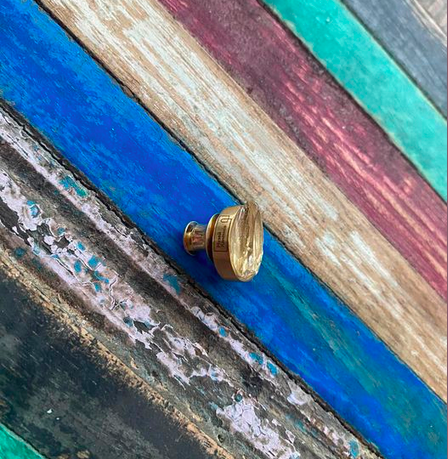
Shards of glass set in gold ― pictures of these lapel pins went viral in mid-February, when a Ukrainian delegation presented these unique accessories at the conference ‘Ukraine out of Blackout’ in Paris. The glass comes from the windows of The Khanenko Museum, Kyiv, which were blown out by a blast when the Russians shelled the city centre with missiles last October.
The pins made by the museum became artworks themselves, and a symbol of the suffering Ukraine had to endure to capture the world’s attention.
One of these pins was presented to Audrey Azoulay, Director-General of UNESCO. Faced with Russia’s attempt to erase Ukrainian heritage and culture, it is vital for the world to act preventatively to preserve Ukraine’s most precious assets. If the country overall is protected ― its culture is also protected.
The walls of the Khanenko Museum, usually home to the largest collection of world art in Ukraine, are now empty. Unlike hundreds of heavily looted and bombed institutions in other Ukrainian regions, the museum has evacuated its artworks to safe locations.
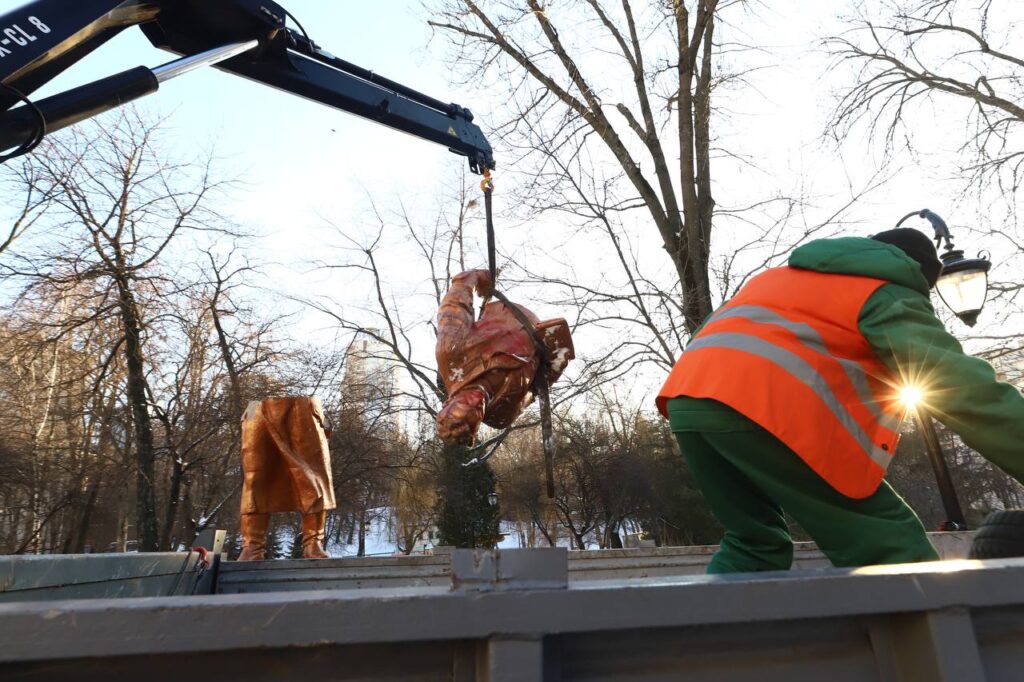
In Zaporizhzhia, where I was born and raised, there was a so-called “Lenin Reserve”. Lenin Avenue ended at Lenin Square, where the Lenin monument stood, pointing to the river port and the hydropower station, both named after Lenin. There was logic to this: it was during the early USSR when Zaporizhzhia received a modern makeover, and at that time, a lot of things were named after Lenin.
With the start of Ukraine’s decommunisation in 2015, signs with Lenin gradually disappeared. The last one was at the “Lenin” art gallery near the “Lenin Reserve”. It mocked Lenin’s presence in the city, and ceased to exist in 2020 when its founder died. Now there is almost nothing left of Lenin in Zaporizhzhia.
A few weeks ago, a monument to General Nikolai Vatutin, a Russian-born Red Army commander who liberated the city from the Nazis, was demolished in Kyiv. A year ago, many people were against its removal. Now there are almost no opponents.
Even in Odesa, which was considered Russia-friendly, a monument to 18th century Emperor Catherine the Great was recently demolished. Just a year ago, no one would have imagined this.
The Russian invasion has radically changed attitudes towards everything Russian in Ukraine. Monuments to Russian personalities are disappearing, streets are being renamed, often to their historical names, showing how the Russian Empire and the USSR have entrenched Russian culture in Ukraine.
Now Ukrainians, most of whom were bilingual, are giving up the Russian language, music, literature, and cinema. Putin’s desire to rewrite Ukrainian history and portray Ukraine as a part of Russia has had the opposite effect. And that cannot be stopped, even if the war ends tomorrow.
Now I live in Kyiv, not far from “Minska” metro station, named after the Belorussian capital. Soon it will also be renamed ― probably after Warsaw. This station is on the road to Belarus, from where Russian tanks rolled towards Kyiv in February. And it was this invading force who smashed everything that was still Russian in Ukraine.
Thanks for reading the 20th edition of European Focus,
We are on the threshold of a spring that could also be decisive for Ukraine’s future. Too many Russian planes fly near our borders, too many occupying troops are trying to advance, and the new Western weapons are arriving here too slowly.
But in messages from my military and civilian Ukrainian friends there is another key topic these days: weather, and especially the sky, is so beautiful these days. After weeks of grey clouds, we can finally see a lot of sun. I hope that, despite all your problems, however big or small, you will also pay attention to the little details that mean so much.
What’s your perception of this issue? It would be great to have your comment at info@europeanfocus.euSee you next Wednesday!
Anton Semyzhenko

